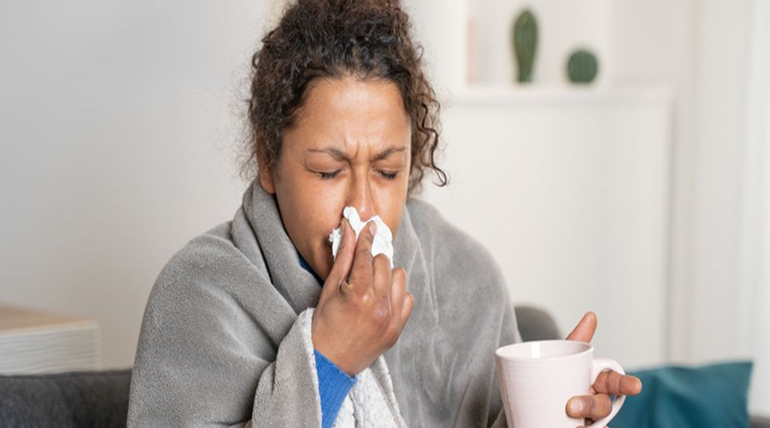How to Stay Healthy During Flu Season

1 year ago
How to Stay Healthy During Flu Season
Flu season often arrives alongside colder weather, bringing a surge in illnesses that can disrupt work, school, and daily life. While the flu is common, it can lead to serious complications, especially for young children, older adults, and those with weakened immune systems.
Fortunately, there are many steps you can take to protect yourself and your loved ones.
This blog post will explore practical tips to help you stay healthy and reduce your risk during flu season.
1. Get Vaccinated
The flu vaccine is your best defense against seasonal influenza.
- Why It Matters: The flu vaccine helps your body build immunity against the most prevalent flu strains. It reduces the severity of symptoms if you do catch the flu and decreases the risk of hospitalization.
- What to Do:
- Get vaccinated annually, ideally before flu season begins (October is a great time).
- Ensure children, pregnant individuals, and high-risk adults in your household are vaccinated.
2. Practice Good Hygiene
Simple hygiene practices can significantly reduce the spread of flu viruses.
- Why It Matters: Flu viruses spread through respiratory droplets and contact with contaminated surfaces. Good hygiene minimizes transmission.
- What to Do:
- Wash your hands frequently with soap and water for at least 20 seconds.
- Use hand sanitizer with at least 60% alcohol when soap isn’t available.
- Avoid touching your face, especially your eyes, nose, and mouth.
- Cover your mouth and nose with a tissue or your elbow when sneezing or coughing.
3. Maintain a Healthy Diet
A well-balanced diet can strengthen your immune system.
- Why It Matters: Nutrient-rich foods provide essential vitamins and minerals that support immune health.
- What to Do:
- Eat plenty of fruits and vegetables, focusing on those high in vitamin C (like oranges, bell peppers, and broccoli).
- Include lean proteins, whole grains, and healthy fats to keep your body fueled.
- Stay hydrated by drinking plenty of water, herbal teas, or clear broths.
4. Get Enough Sleep
Adequate rest is essential for a strong immune system.
- Why It Matters: Sleep allows your body to repair and regenerate, improving its ability to fight off infections.
- What to Do:
- Aim for 7-9 hours of sleep per night.
- Stick to a consistent sleep schedule, even on weekends.
- Create a relaxing bedtime routine to improve sleep quality, such as reading, meditating, or taking a warm bath.
5. Stay Physically Active
Regular exercise helps boost your overall health and immunity.
- Why It Matters: Moderate physical activity increases circulation, promotes healthy immune function, and reduces stress.
- What to Do:
- Aim for at least 30 minutes of moderate exercise, such as walking, cycling, or yoga, most days of the week.
- Avoid overexertion, especially if you feel unwell.
6. Avoid Close Contact with Sick Individuals
Limiting exposure to the flu virus is key to staying healthy.
- Why It Matters: The flu is highly contagious, especially in crowded places like schools, offices, and public transportation.
- What to Do:
- Maintain a safe distance from people showing flu symptoms.
- Encourage family members to stay home if they feel sick to prevent spreading the virus.
7. Keep Your Environment Clean
Sanitizing your surroundings reduces the risk of viral transmission.
- Why It Matters: Flu viruses can live on surfaces for hours, increasing the chance of infection.
- What to Do:
- Disinfect high-touch surfaces daily, such as doorknobs, light switches, keyboards, and phones.
- Regularly clean shared spaces, such as bathrooms and kitchens.
- Use disinfectant wipes or sprays proven to kill flu viruses.
8. Manage Stress
Chronic stress weakens the immune system, making you more susceptible to illness.
- Why It Matters: High stress levels can impair your body’s ability to fend off infections.
- What to Do:
- Practice relaxation techniques such as deep breathing, meditation, or journaling.
- Engage in hobbies or activities you enjoy to unwind.
- Seek social support from friends, family, or support groups.
9. Recognize Early Symptoms
Knowing the signs of the flu can help you take quick action.
- Why It Matters: Early treatment can reduce the severity of flu symptoms and prevent complications.
- What to Do:
- Look out for symptoms such as fever, chills, sore throat, muscle aches, fatigue, and congestion.
- If symptoms appear, stay home, rest, and consult a healthcare provider if needed.
10. Stay Home When Sick
Protect others by avoiding public spaces if you’re unwell.
- Why It Matters: Staying home prevents the spread of the virus to coworkers, classmates, and the community.
- What to Do:
- Avoid work, school, or social events until you’re fever-free for at least 24 hours without medication.
Use delivery services for groceries or essentials if you need to isolate.
Conclusion
Flu season does not have to mean inevitable illness. By taking proactive steps to boost your immunity, practicing good hygiene, and staying vigilant, you can significantly reduce your risk of catching the flu.
Small, consistent habits can make a big difference in keeping you and your family healthy.
Remember, prevention is the best medicine. Start implementing these tips today and enjoy a healthier flu season!
©everlastcyber™





0 Comment